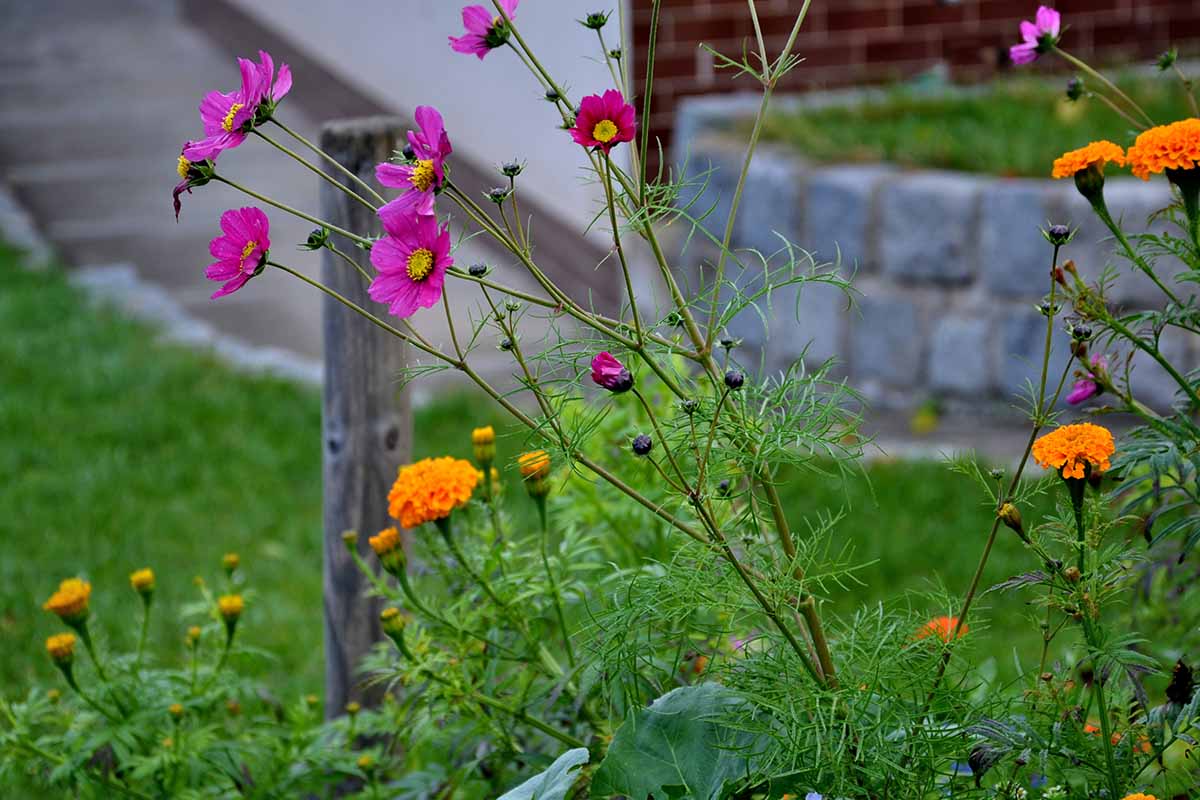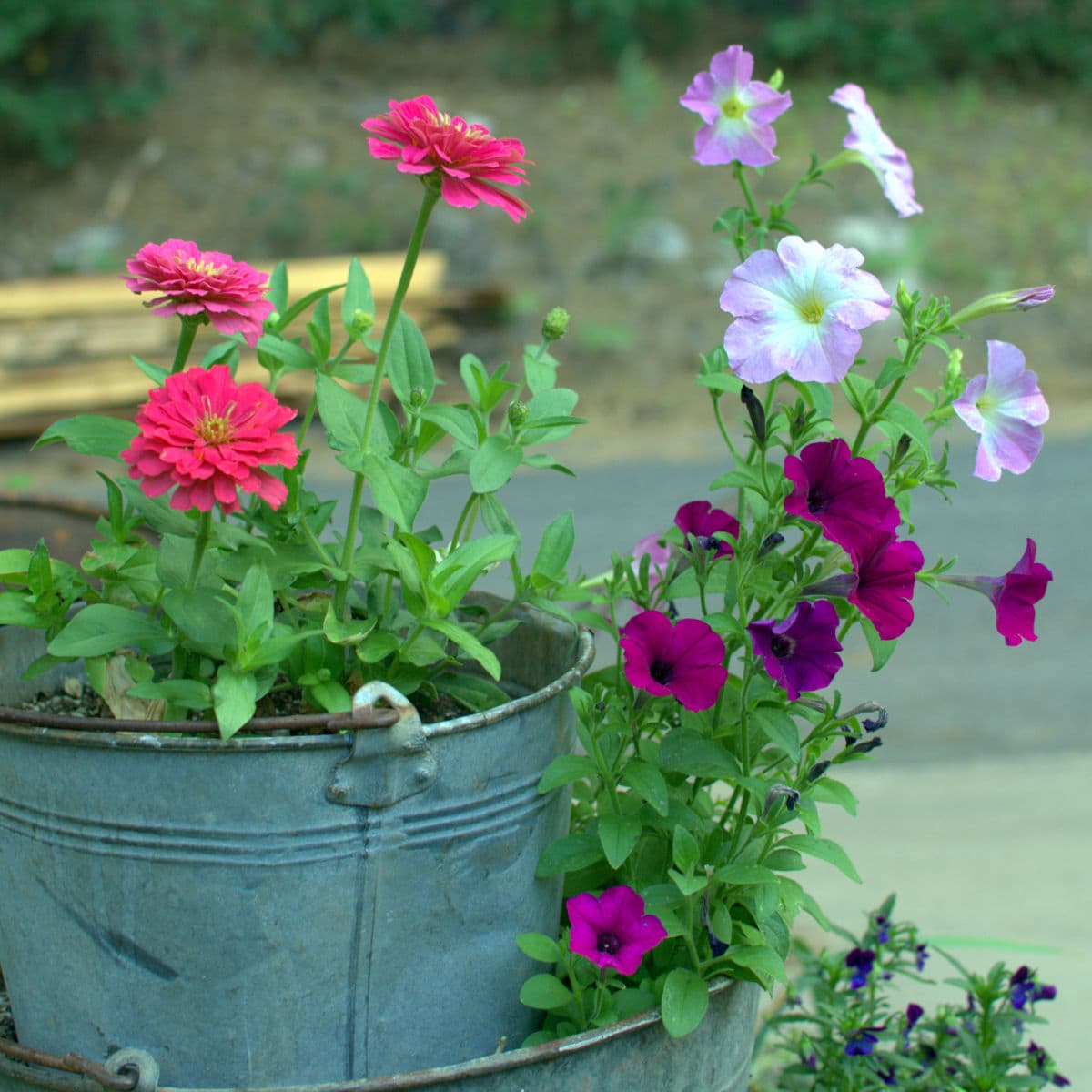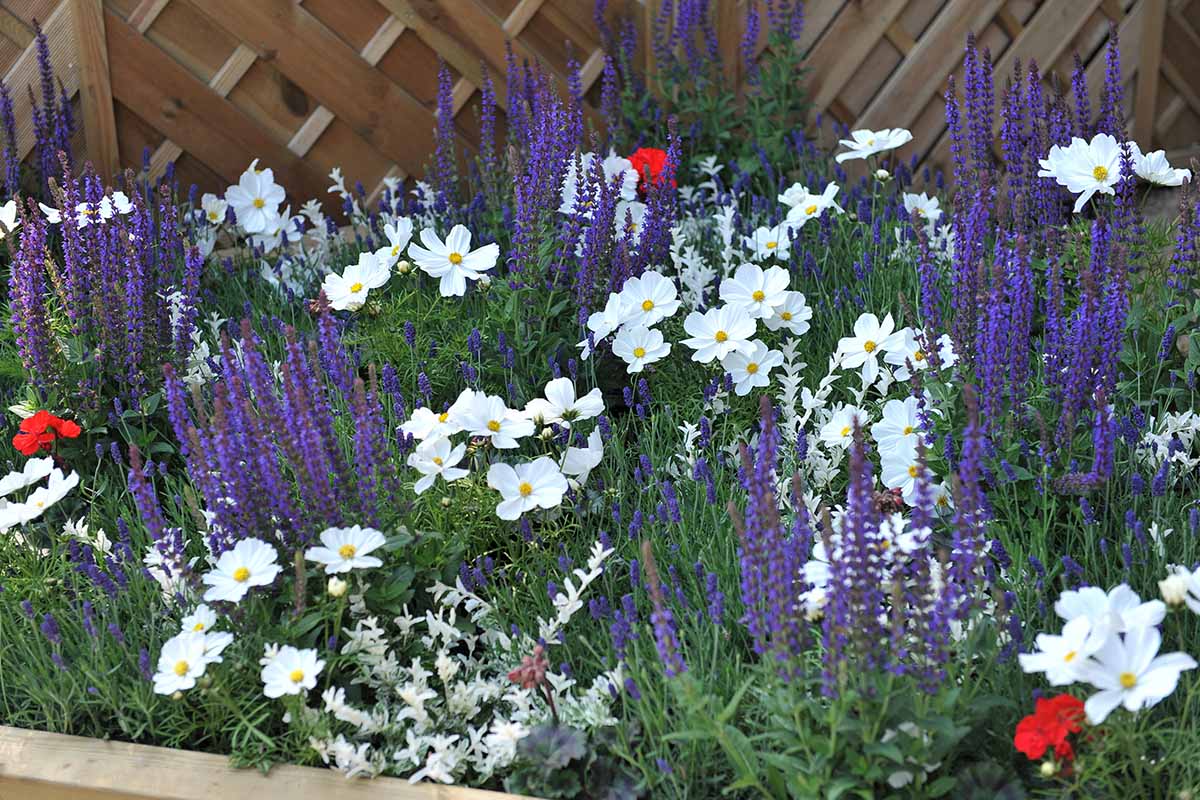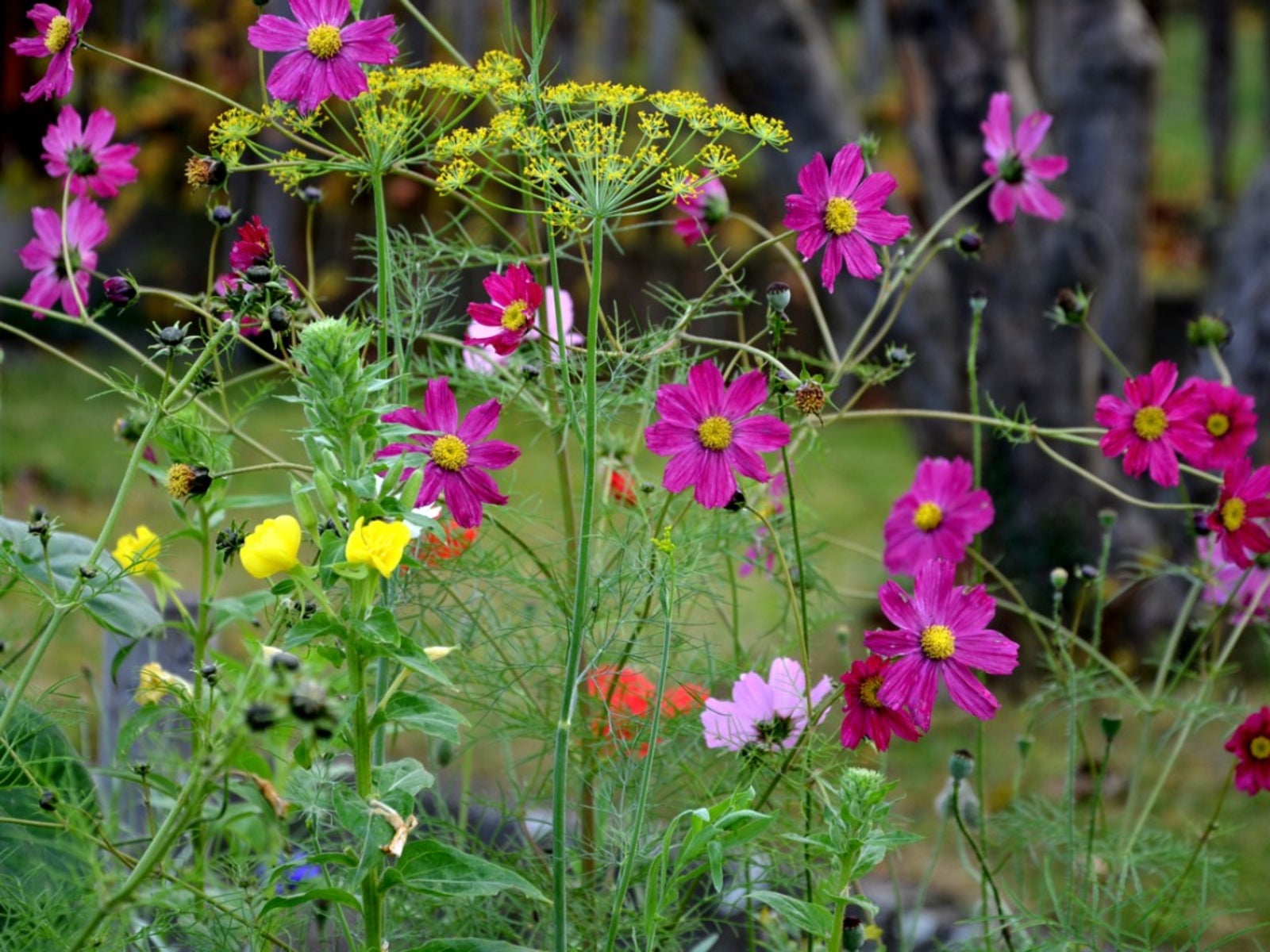Cosmos Companion Plants That Will Make Your Garden Thrive
Cosmos are beautiful, easy-to-grow annuals that can add a touch of color and grace to any garden. They're also relatively pest- and disease-resistant, making them a low-maintenance choice for even beginner gardeners.
But did you know that cosmos can also help to improve the health and productivity of your garden? That's because cosmos are companion plants, meaning that they can benefit each other when planted together.
In this blog post, we'll take a look at some of the best companion plants for cosmos, and explain how they can help your garden thrive.
Benefits of companion planting
Companion planting is a gardening technique that involves planting certain types of plants together in order to enhance their growth and productivity. There are many different benefits to companion planting, including:
- Attracting beneficial insects: Many companion plants attract beneficial insects, such as pollinators and predators of pests. This can help to keep your garden healthy and pest-free.
- Disease suppression: Some companion plants can help to suppress the growth of diseases, such as powdery mildew and root rot.
- Improved soil quality: Companion plants can help to improve the soil quality in your garden by adding nutrients, breaking down organic matter, and suppressing weeds.
- Increased yields: Companion planting can help to increase the yields of certain crops, such as tomatoes and cucumbers.
Cosmos companion plants
Now that we know a little bit about the benefits of companion planting, let's take a look at some of the best companion plants for cosmos.
- Marigolds: Marigolds are a classic companion plant for cosmos. They help to repel pests, such as aphids and tomato hornworms. They also attract beneficial insects, such as ladybugs and lacewings.

- Cucumbers: Cosmos can help to attract pollinators, such as bees and butterflies, which are essential for cucumber pollination. They can also help to suppress the growth of powdery mildew, a common cucumber disease.

- Tomatoes: Cosmos can help to attract pollinators, such as bees and butterflies, which are essential for tomato pollination. They can also help to suppress the growth of tomato hornworms, a common tomato pest.

- Beans: Cosmos can help to improve the nitrogen levels in the soil, which is beneficial for beans. They can also help to suppress the growth of bean beetles, a common bean pest.

- Sunflowers: Sunflowers can help to attract pollinators, such as bees and butterflies, which are essential for sunflower pollination. They can also help to provide shade for cosmos plants, which can help to prevent them from wilting in hot weather.

These are just a few of the many companion plants that can benefit cosmos. When choosing companion plants, it's important to consider the specific needs of your cosmos plants and the type of garden you have.
Conclusion
By planting cosmos with the right companion plants, you can help to improve their growth, productivity, and health. This can lead to a more beautiful, productive, and pest-free garden.
So next time you're planning your garden, be sure to consider companion planting. You may be surprised at how much it can improve your results.
Cosmos are beautiful, easy-to-grow annuals that can add a touch of summery charm to any garden. But did you know that they can also benefit from being planted near certain companion plants?
Some of the best cosmos companion plants include:
- Marigolds: These brightly colored flowers help to deter pests, such as aphids and whiteflies.
- Tomatoes: Cosmos attract pollinators, which can help to increase tomato yields.
- Beets: The dark red leaves of beets provide a striking contrast to the delicate blooms of cosmos.
- Canna lilies: These tall, stately plants add height and drama to a flower bed.
- Zinnias: Zinnias and cosmos have similar growing requirements and bloom at the same time, making them a great pair for companion planting.
For more information about cosmos companion plants, please visit Gardenia Inspiration.
FAQ of cosmos companion plants
- What are some good companion plants for cosmos?
Cosmos are versatile plants that can be paired with a variety of other flowers and vegetables. Some good companion plants for cosmos include:
* Zinnias: Zinnias and cosmos have similar growing requirements and bloom at the same time, so they make great companions. They also attract beneficial insects like butterflies and bees.
* Marigolds: Marigolds are another good companion for cosmos because they help to repel pests. They also have a similar sunny disposition and will add color and interest to your garden.
* Dahlias: Dahlias and cosmos are both tall, showy flowers that can be planted together to create a dramatic display. They also have similar water and soil requirements.
* Coneflowers: Coneflowers and cosmos are both native North American flowers that attract butterflies and other pollinators. They also have different bloom times, so you can enjoy their beauty all season long.
* Black-eyed Susans: Black-eyed Susans and cosmos are both easy-care flowers that prefer full sun and well-drained soil. They also have similar flower colors, so they can be planted together to create a cohesive look.
- How do I plant cosmos companion plants together?
When planting cosmos companion plants together, it is important to consider their mature size and spacing requirements. For example, zinnias and cosmos can be planted close together, while dahlias and coneflowers need more space to grow. It is also a good idea to plant taller plants in the back of your garden and shorter plants in the front, so that all of your plants have enough room to grow.
- What are some benefits of companion planting cosmos?
There are many benefits to companion planting cosmos. Some of the most important benefits include:
* Attracting beneficial insects: Cosmos attract beneficial insects like butterflies and bees, which can help to pollinate your other plants and control pests.
* Disguising pests: Tall cosmos plants can help to disguise shorter plants that are susceptible to pests. This can help to protect your plants from being eaten.
* Improving soil quality: Cosmos are nitrogen-fixing plants, which means they can help to improve the nitrogen content of your soil. This can benefit other plants in your garden.
* Providing structure: Cosmos can provide structure to your garden by adding height and interest. They can also be used to create borders or screens.
* Extending the bloom time: Cosmos can bloom for several months, so they can help to extend the bloom time of your garden.
- What are some common pests and diseases that affect cosmos?
The most common pests that affect cosmos are aphids, spider mites, and whiteflies. These pests can be controlled with insecticidal soap or neem oil. Cosmos are also susceptible to powdery mildew, which can be prevented by watering your plants at the base and avoiding overhead watering.
- How do I care for cosmos companion plants?
Cosmos are relatively easy to care for and require full sun and well-drained soil. They should be watered regularly, especially during hot, dry weather. Cosmos can be fertilized once a month with a balanced fertilizer. To deadhead cosmos, simply pinch off the spent blooms. This will encourage the plant to produce more flowers.
Image of cosmos companion plants
- Cosmos and marigolds. Marigolds are another annual flower that is native to Mexico and Central America. They have similar growing requirements to cosmos and can help to repel pests.

- Cosmos and sunflowers. Sunflowers are tall, sunny flowers that can add a touch of drama to any garden. They also attract pollinators, which can help to improve the health of your cosmos plants.

- Cosmos and Zinnias. Zinnias are another popular annual flower that is easy to grow and care for. They come in a wide variety of colors, so you can mix and match them with your cosmos plants to create a colorful display.

- Cosmos and herbs. Herbs can also make great companion plants for cosmos. They can help to deter pests and diseases, and they can also add flavor to your cooking. Some herbs that pair well with cosmos include basil, chives, and lavender.

- Cosmos and vegetables. Cosmos can also be planted alongside vegetables in your garden. They can help to attract pollinators, which can help to improve the pollination of your vegetables. Some vegetables that pair well with cosmos include tomatoes, cucumbers, and squash.

Post a Comment for " Cosmos Companion Plants That Will Make Your Garden Thrive"